Is Breakfast Really the Most Important Meal of the Day?
You know that age-old bit of wisdom, “Breakfast is the most important meal of the day?” Well, that little one-liner is actually the subject of much debate, research, and conflicting information. According to medical literature, breakfast is touted as the most important meal of the day, in part, for two reasons: it decreases overall appetite and decreases overall food consumption.
But wait, how is that a good thing again?
Many people (unfortunately) still subscribe to the ‘calories in-calories out’ myth. They believe that health is defined only by body weight and that burning more calories than you consume, and therefore losing weight, equals health.
Well, that’s simply not true. Thin does not equal healthy. Not only that, but there is mounting evidence that skipping breakfast may be better than eating it. An eating method called Intermittent Fasting is gaining popularity. This method is different from simply skipping a meal — it’s a carefully considered strategy for missing meals with the intent of boosting metabolism, lowering inflammation in the body, better blood sugar control and more.
Making Calories Count
I’m not taking sides on the breakfast or no breakfast debate. What I am saying is that I think a lot of people are missing the point entirely. There’s a huge difference between counting calories and making calories count. If you are truly concerned about health, your focus needs to be on making the calories you consume count- as nutrient-dense as possible.
I think we can all agree that a breakfast of a sprinkle-covered donut isn’t ideal, but I think many of us are also eating breakfasts that we think are good for us, but really aren’t. Is your breakfast on this list?
3 Breakfast Foods to Avoid and What to Eat Instead
-
Cereal
Breakfast cereal companies will tell us “Cereal can be a part of a balanced breakfast.” And then they go on to picture a bowl topped with berries, covered in milk, and paired with a glass of orange juice.
Breakfast cereals are one of the most processed foods on the market. The vast majority are made with GMOs, have high sugar content, and even artificial flavorings and food dyes. They are completely void of nutrients our bodies can use.
Don’t be misled by the label — when you see the word fortified, know that this is sneaky verbiage for synthetic, man-made versions of vitamins and minerals. Our bodies can’t absorb these types of fake nutrients, rendering them useless. In fact, some synthetic vitamins are actually toxic to the body. (Have you ever taken a synthetic multi-vitamin and then noticed your urine is bright yellow? That’s your body flushing it all out. Pun intended.)
High-protein cereals that claim to be better for you aren’t, really. They are likely to be just as full of GMOs and fortification as Frooty Puffs. The fact is that highly-processed grains in any form aren’t health food.
What to Eat Instead
- Homemade granola bars
- Grain-free granola
- Homemade trail mix made with crispy nuts, dried figs, raisins, and coconut chips
-
Milk
If you cover your cereal with low-fat or fat-free milk thinking it’s better for you than whole milk, you’re wrong. Let me just say — fat does not make you fat. (Healthy) fat is absolutely crucial for good health. Many nutrients are fat-soluble, meaning your body can only absorb and assimilate them effectively if they’re consumed with fat. Whole milk is naturally rich in vitamins D, A, E, and K. And you guessed it — those are all fat-soluble. The vitamins you see listed on that jug of skim milk? They’re just as synthetic and useless as the vitamins added to your cereal.
And there’s more! Conventional milk is pasteurized, a process that is intended to kill any rogue pathogens that might be found in milk. Pasteurization is necessary for safety because of the way cows are treated. Factory farmed milk comes from cows that live in inhumanely unsanitary conditions. The cows often are unable to move and develop weeping wounds. If that doesn’t make you sad it should make you sick — conventional milk is teeming with blood, pus and feces. Pasteurization doesn’t remove it, it simply kills them.
Pasteurization also makes milk virtually devoid of any redeeming value. The heat that kills the pathogens also destroys all the enzymes that help us digest it properly, which leads to lactose intolerance, allergies, and digestive issues.
What to Drink Instead
- Raw milk that’s unpasteurized and not homogenized (find a source here)
- Raw goat milk
- Non-dairy milk (Be wary of additives and added sugar in store-bought milk. It’s best and SO EASY to make your own.)
- Fresh pressed juices, especially vegetable juices
3. Yogurt
All the same things apply here as did with the milk.
And there’s more — unless you’re buying plain yogurt you are getting a whopping dose of sugar. I took a peek at the yogurt option at my local store recently, and most yogurts had around 20 grams of sugar per serving. THAT IS EQUIVALENT TO 5 TEASPOONS OF SUGAR! That is not a good way to start the day!
We all know sugar is bad for us, but I think many of us don’t realize just how bad. Yes, it can make us fat, but it also effectively suppresses immune function and increases risk of cancer, since cancer feeds on sugar. Flavored yogurts often also contain flavorings (artificial and natural flavorings are both no-no’s) and food dyes- both of which are huge causes of behavioral and focus problems, especially in children. Also be on the lookout for (and avoid) corn syrup, modified corn starch, and artificial sweeteners.
What to Eat Instead
- Plain goat milk yogurt that you’ve flavored yourself. Use fresh fruit and raw honey or pure maple syrup.
- Chia pudding
Bonus Breakfast Ideas
Sliced apples, carrots or celery with nut butter
If you’re in a hurry to get out the door, try BNTO by Cuppow. It’s an adaptor that makes a mason jar a to-go container with separate compartments. It’s perfect for keeping dips, dressing, and sauces separate from your food until you’re ready to eat.
Leftovers from dinner
Who says breakfast can’t be chicken and veggies? My oldest son loves to eat dinner for breakfast. He will happily eat meat and salad for breakfast. (He’s even coined a term for dinner for breakfast: He calls it Dinfast.) My other children ask for lunch foods for breakfast like hard boiled eggs or guacamole.
Smoothies
You can throw pretty much anything into a blender and be out the door in minutes. If you’re really strapped for time, either portion the ingredients ahead of time so all you have to do is blend, or pre-make smoothies and keep them cold in the fridge or freezer.
Popsicles
Same idea as the smoothies. I have these silicone popsicle molds and my kids love it when I make popsicles for them from leftover smoothies. They think it’s fun to have a frozen treat for breakfast.
One More Note
If you’re a person who opts to skip breakfast, but you love your morning cuppa Joe, make it worth it. Make sure to drink only organic coffee, since conventional coffee is heavily sprayed with pesticides. Use it as a chance to get some good fat like coconut oil or grass-fed butter and sweeten it with enzyme-rich raw honey. Or better yet, kick your habit and try a delicious coffee substitute.
What do you eat for breakfast? Could it use a makeover?
SaveSave

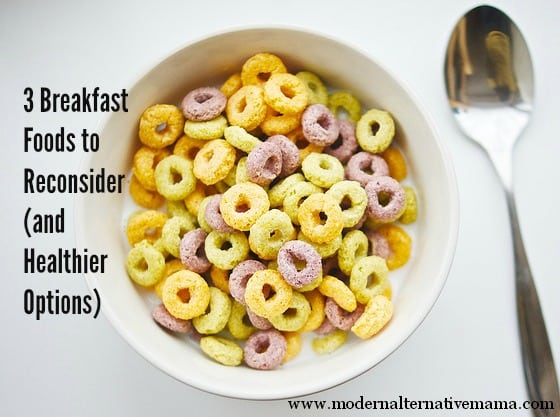





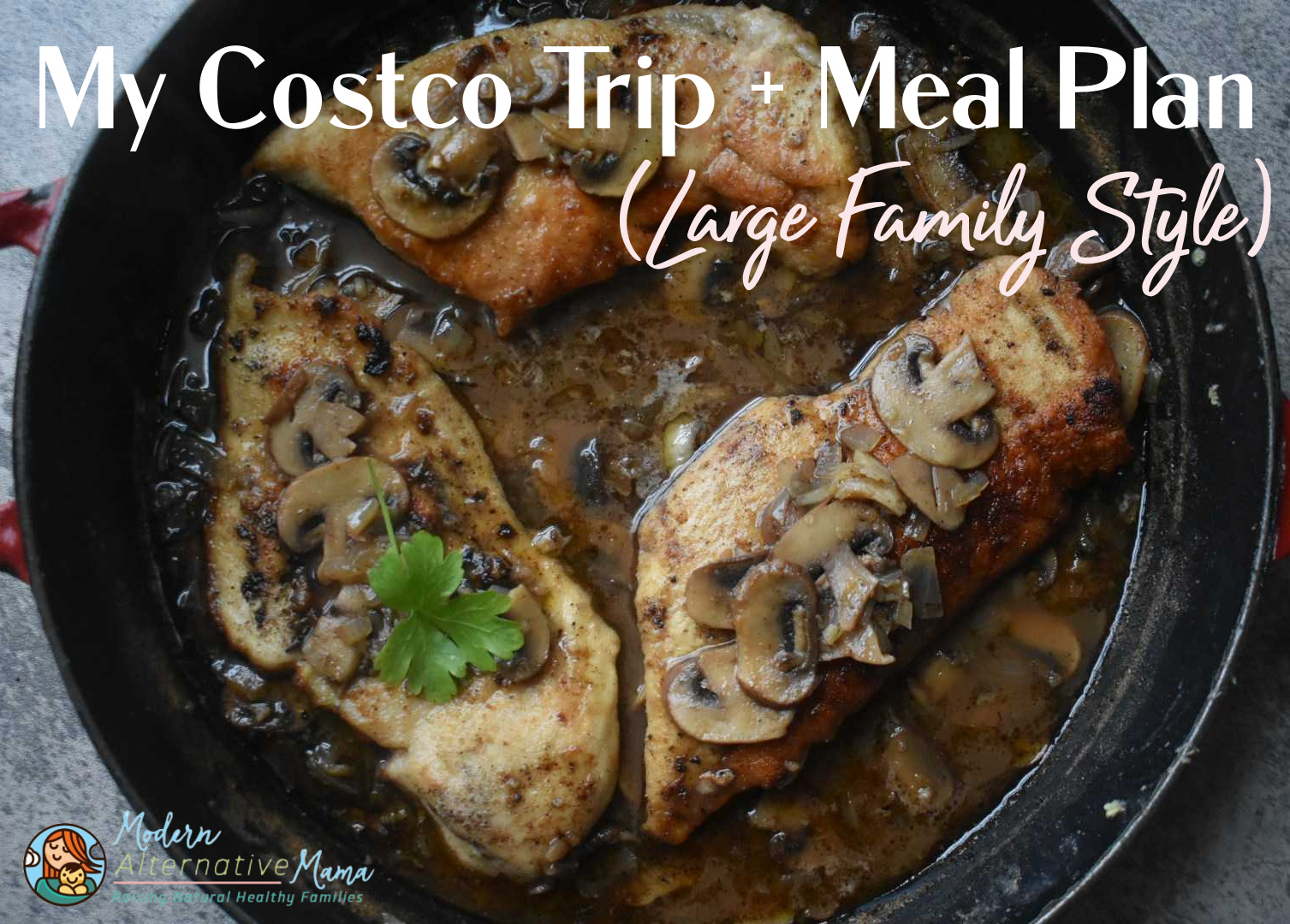
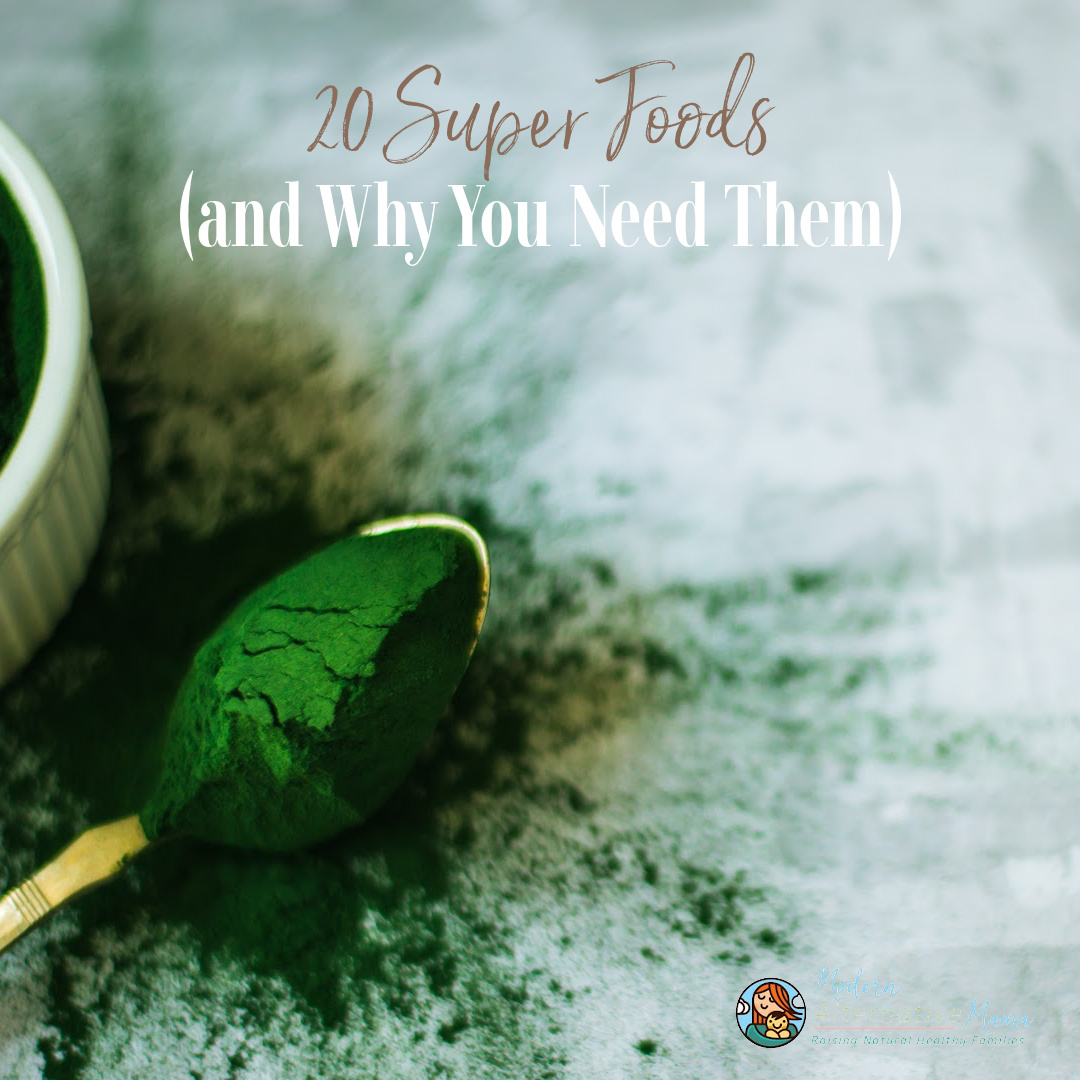
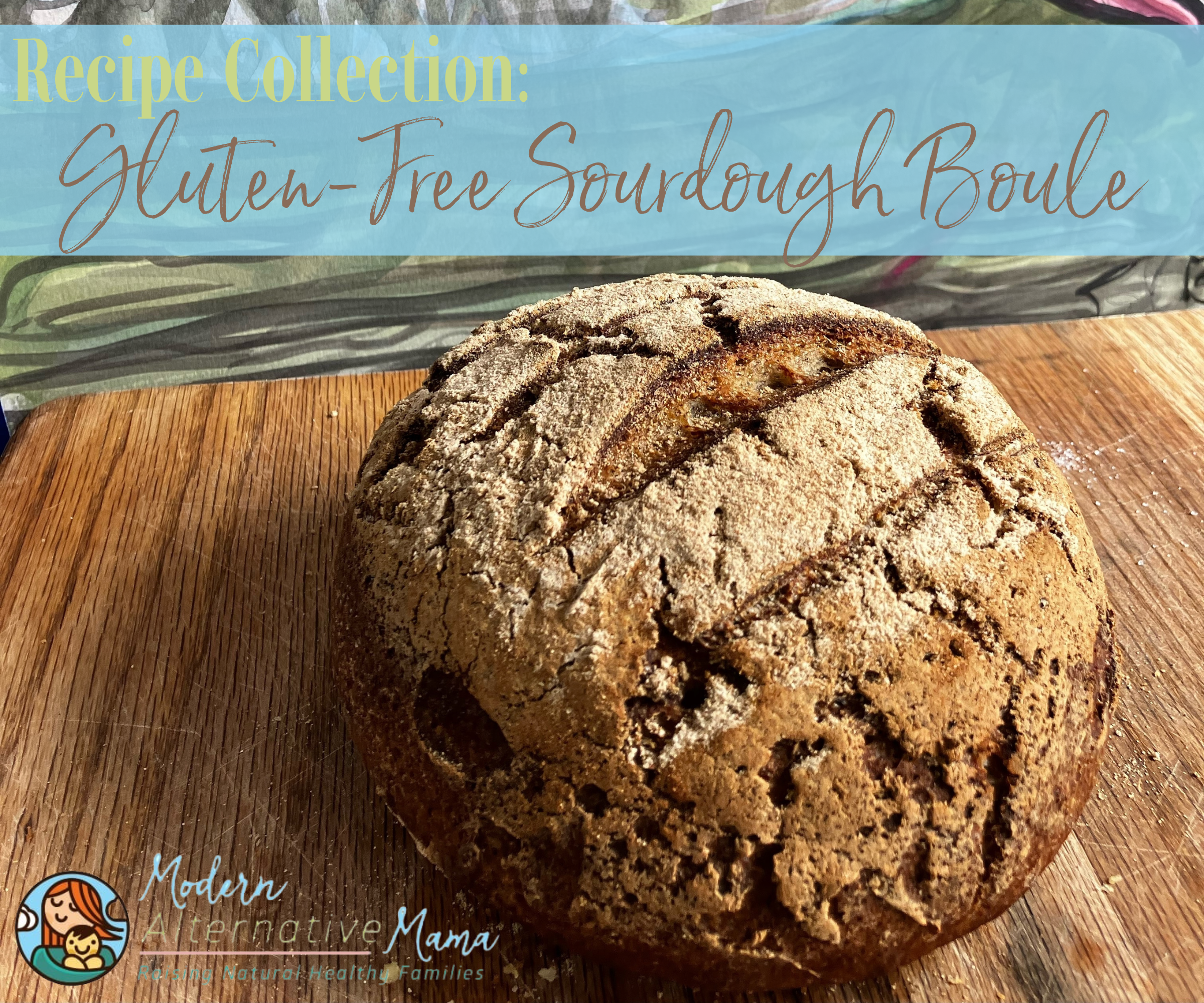
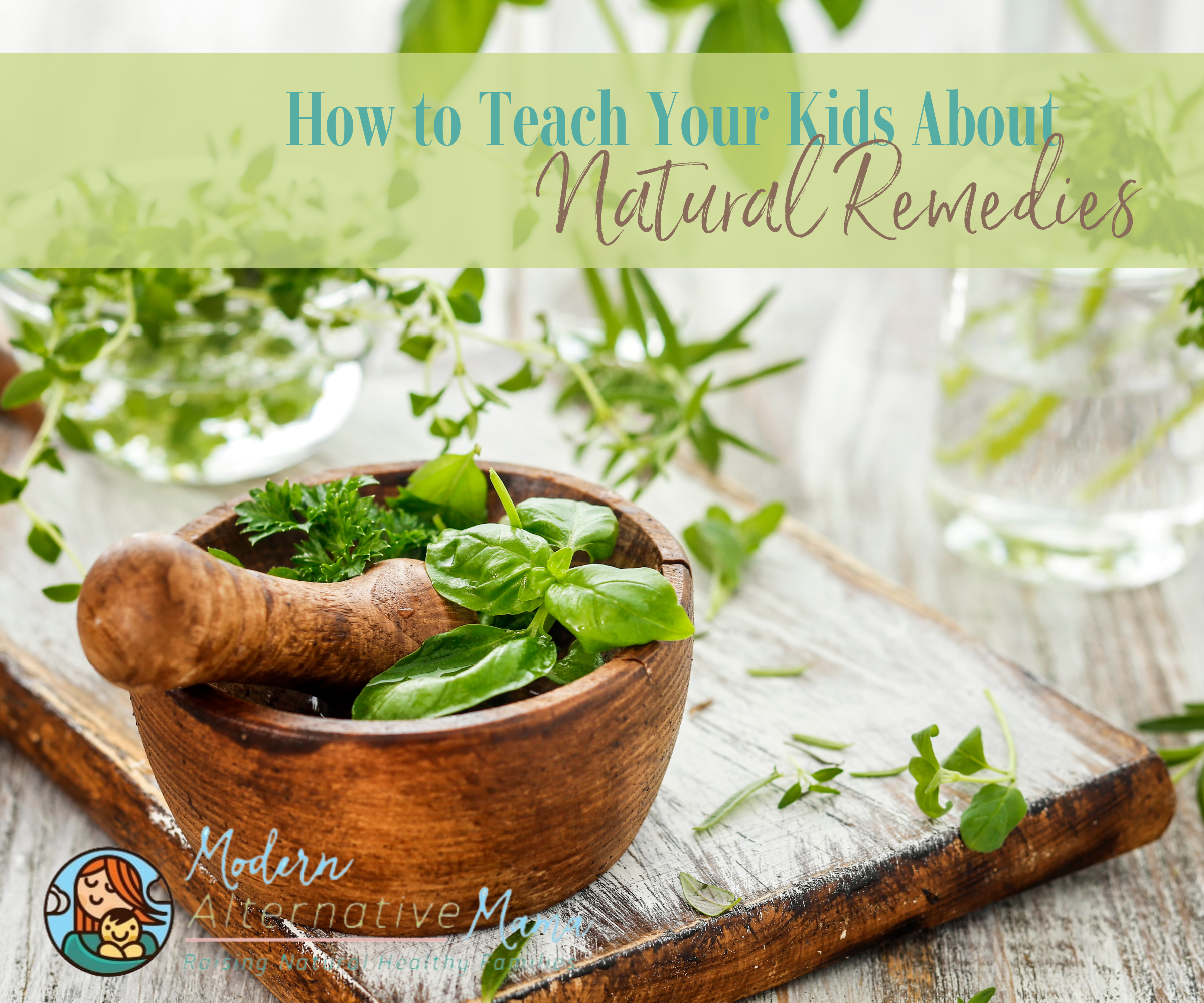

Just curious….I didn’t see a citation for your statement that “some synthetic vitamins are toxic.” I would like to know what research backs this up. My understanding about multi vitamins is that they sometimes turn urine yellow because of a massive amount of B vitamins. In the research I have seen, this has shown to be harmless, and that the body is simply flushing the excess it does not need.
You are correct, most vitamins are water soluble and your body will discard whatever it doesn’t immediately need in urine which turns urine colors. Your body is designed to absorb the vitamins it needs over the course of a day, not all at once like happens in a multivitamin. You can’t absorb 100% of your vitamin B at one time so some of it is discarded.
The link for the coffee substitute appears to be dead.